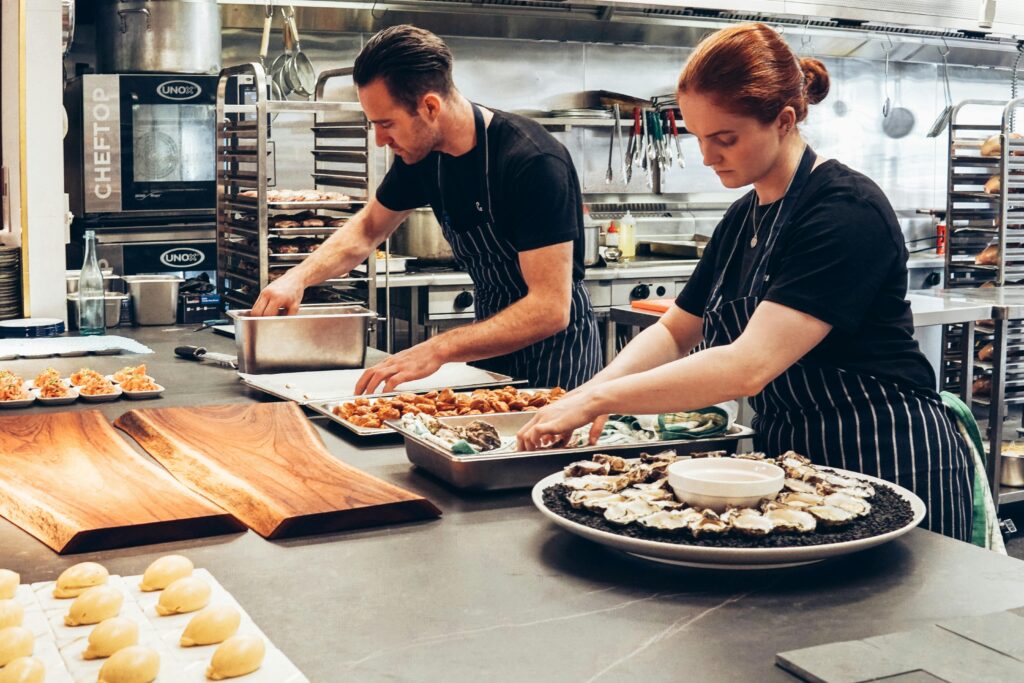By Deborah H. Anderson
The television show “Chopped” is my go-to for all seasons. If you haven’t seen it, the premise is simple, and the action is intense.
“Chopped” is a game show where four chefs from various demographics and styles of cooking in the restaurant industry have to prepare an appetizer, entree, and dessert in three separate rounds, each involving a basket of unknown ingredients. Each round, someone gets eliminated until the dessert round, when there is one final winner. The prize is usually $10,000. In tournaments, it may be more.
Sometimes the chefs are home cooks. Frequently, there is a theme. For each round, there are four random items in each basket. The chefs have to make them into a proper dish with creativity, good execution, and beautiful presentation. They have 20 minutes for the appetizer and 30 minutes each for entreé and dessert.
Why is it my go-to? It is not only because I love food shows, but also because the show’s premise and rules are full of life hacks.
First, “Chopped” gave me this strategy, for when I am pressed or feeling overwhelmed: What are the four biggest resources I have to work with, and how can I combine them to get something done? Works every time. I ask that question of myself and boom! Progress! That focus has brought order to chaos innumerable times.
The second life hack I take from the show is the verbal protocol in the kitchen and restaurant industry. Specifically, three phrases: “Heard,” “Behind,” and “Thank you, chef.” When the chefs are giving instructions to each other, they say “heard.” When they are moving around one another in the kitchen, they say “behind” (or “down the line”). When one chef critiques another, they say “Thank you, chef.”
I started to wonder – what would be the effect if we all used those three phrases in everyday life? If, when someone gave feedback on receiving information, we said “heard,” would that change how we listen? Or, if we let each other know where we were in relationship to their physical, life space, or journey (“behind”), would that make things coordinate more smoothly?
If we all said, “thank you” when someone gave us a critique or advice, would it change how we spoke, knowing that the person was going to say, “thank you”?
I think these phrases create harmony because, in the kitchen there is a basic respect for each other, everyone has a common goal, and everyone is eager to develop their skills and abilities, gifts and talents, to a higher level.

